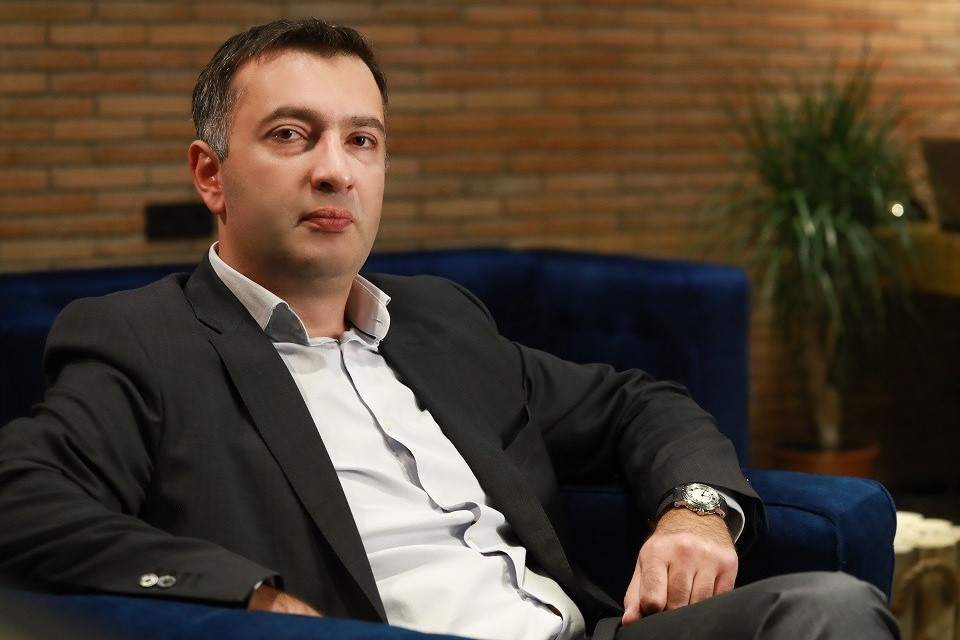Interview: “The Academy of the Ministry of Finance trained 357 civil servants in gender-responsive budgeting”
Date:

UN Women is supporting the Government of Georgia in mainstreaming gender in budgetary processes. The initiatives involves a partnership with the Academy of the Ministry of Finance, as part of which, in 2021–2022, a special training programme was developed on gender-responsive budgeting, and capacity development trainings were conducted for public servants throughout the entire country. The initiative is part of the project “Good Governance for Gender Equality in Georgia ”, generously supported by the Government of Norway. Tariel Chulukhadze, the director of the Academy of the Ministry of Finance, speaks about the results of the initiative.
Which major achievements and outcomes would you highlight after the implementation of the initiative?
First of all, it should be mentioned that as a result of our partnership with UN Women 357 public servants from national and local governments strengthened capacity on gender responsive budgeting. In addition, the trainings provided by the Academy of the Ministry of Finance covered the entire country. This includes training public servants from almost all 64 municipalities across Georgia.
In addition to training public servants, at the initial stage, the selected trainers/experts were trained who became certified trainers of the Academy of the Ministry of Finance on gender responsive budgeting. In addition, at the end of the project, additional 4 participants participated in the training of trainers so they are able to share their knowledge on gender responsive budgeting with peers. I think this continuity and sustainability are special achievements of the project.
As part of the project, an online training module was also prepared about the course. When will it become available?
The online course on gender-responsive budgeting is practically ready, and it will be posted on the Academy’s website (www.mofacademy.ge/en/) in the near future. The course will be accessible free of charge to everybody who is interested, and a certificate will also be issued to those who take the course. I think the online module will further increase the interest in the topic of gender-responsive budgeting.
In your opinion, how important is increasing the knowledge of civil servants in the context of gender-responsive budgeting?
Gender-responsive budgeting is good budgeting and, in a broader sense it contributes to good budgetary practices, as well as good governance overall. Training civil servants in these areas is extremely important so that they are able to incorporate gender in the planning, implementation and reporting stages of their policies and programmes. In addition, gender-responsive budgeting will promote gender equality and a more equitable distribution of resources.
How does the Academy of the Ministry of Finance itself work on the implementation of gender-responsive budgeting?
What practice what we preach. In other words, at the Academy of the Ministry of Finance, we have ensured to implemented gender responsive budgeting as a apr of planning our budget. The 2024 budget of the Academy will be gender-responsive.
How do you see the future steps in implementing gender-responsive budgeting in Georgia and the role of the Academy in this process?
Experience has shown that it is necessary to raise the awareness of the decision makers about the meaning and significance of gender-responsive budgeting. Furthermore, it is prudent to change the legislative framework for gender mainstreaming in various legislative acts. Gender-responsive budgeting and its indicators are currently only a recommendation. Making gender responsive budgeting obligatory will facilitate and hasten the implementation process of this reform. In addition, it would be a good idea to expand the target audience and cover legal entities of public law (LEPLs) under the capacity development trainings as well. Various spending agencies and municipalities need expertise to be able to implement gender budgeting and gender mainstreaming in various documents.
With the support of UN Women, the Academy was allowed to contribute to gender responsive and efficient planning of the budget; and obviously, we are ready, within our competence, to facilitate taking these steps in the future as well.